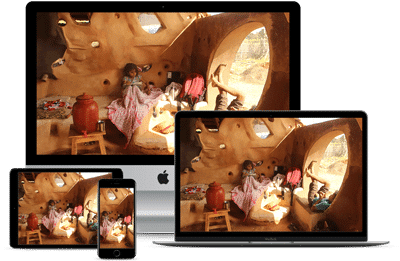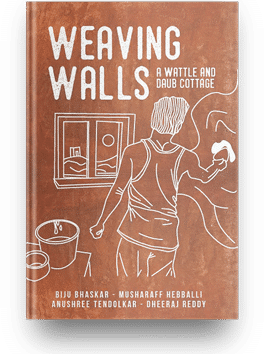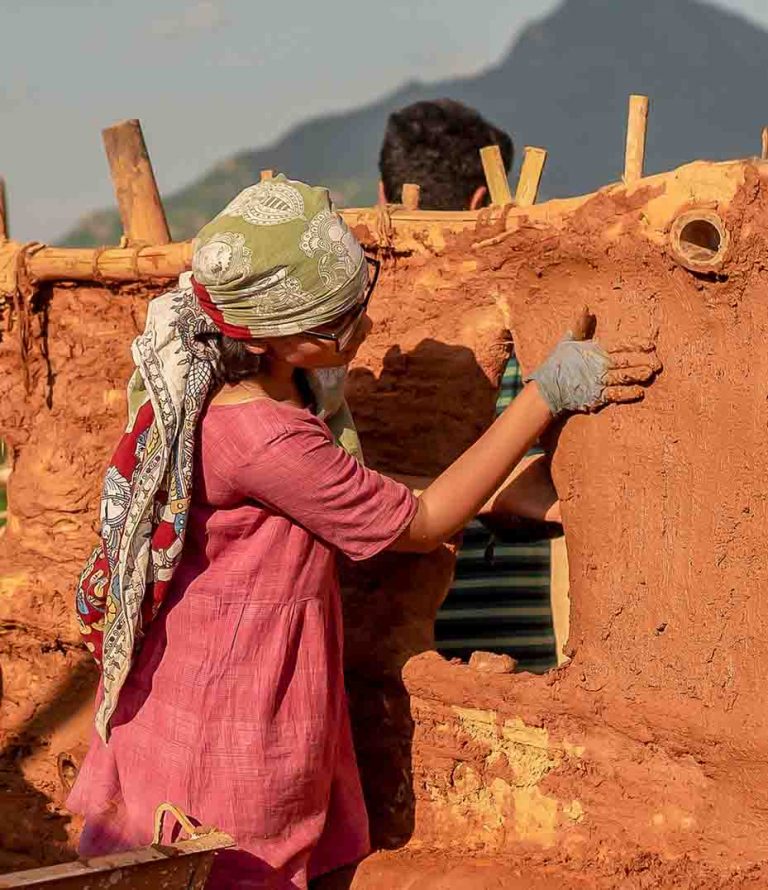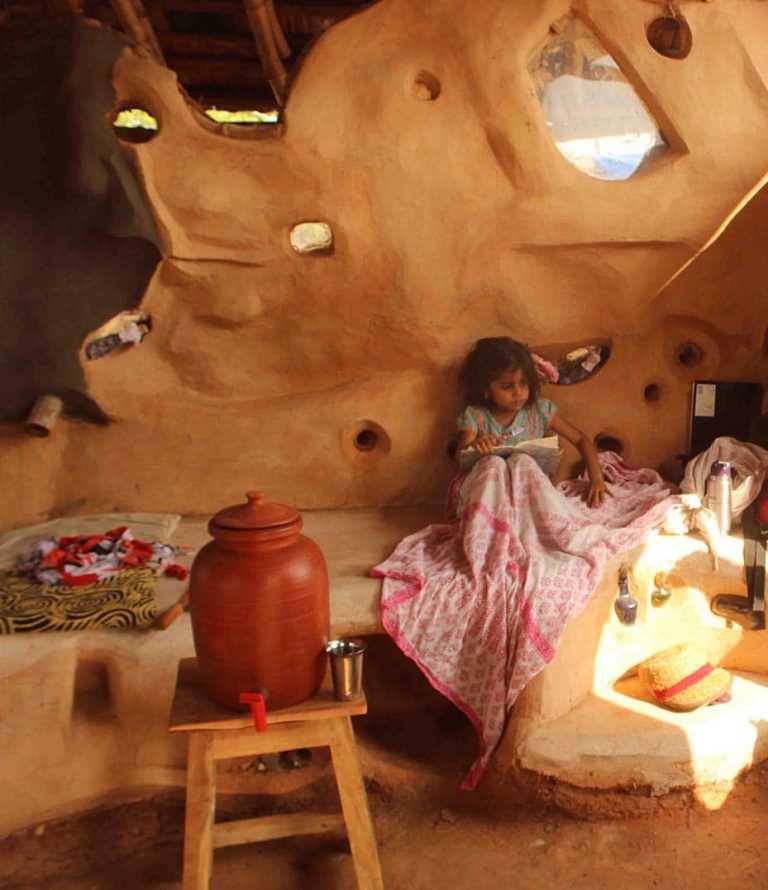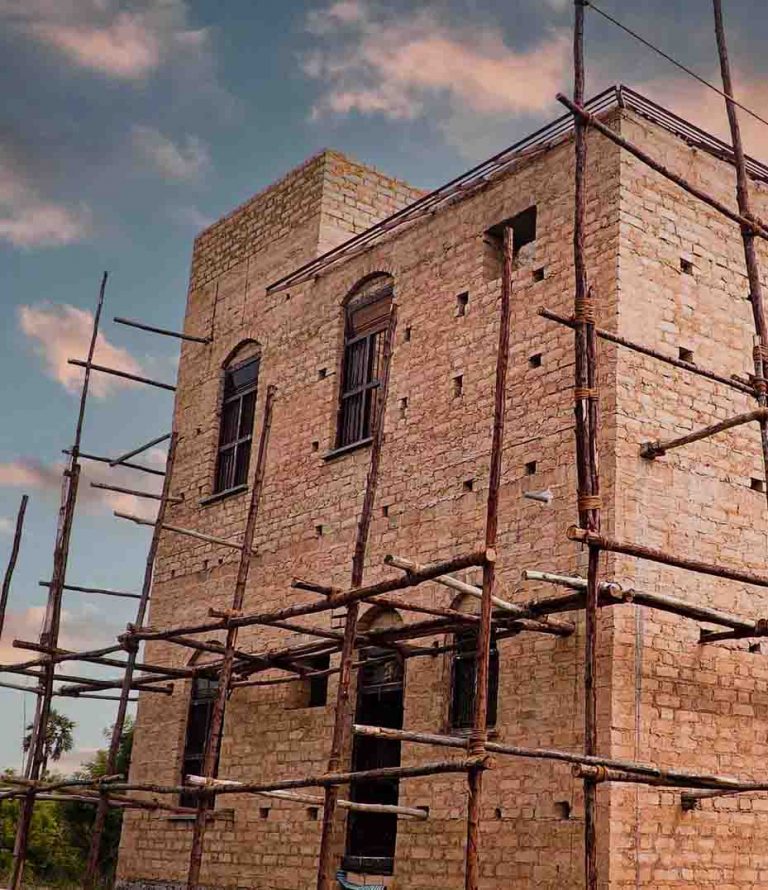About us
‘Thannal’ means shade. Thannal Natural Homes is a Natural Building Awareness Group, founded by Natural Building architect Biju Bhaskar and his wife Sindhu Bhaskar in 2011. Know more about Biju Bhaskar here
Thannal believes in the Indian way of Learning. Indigenous knowledge in shelter making, which was practised in India from the Vedic ages is what we explore and examine. Descriptions about pozzolanic reactions of suda (lime) and surkhi (burnt mud) are found in Vishnudharmottara’s Chitrasutra and how to use natural derivatives from plants and animals effectively in construction. India lacks legitimate documentation of indigenous knowledge in every field now, as many such sources have been either destroyed by foreign invasions and the existing sources are devoid of scientific explanations.
As we see in most of the ancient human settlements, people have lived in durable, comfortable buildings made from natural materials. A third of the world’s population today still lives in building constructed on Earth.
Houses are material extensions of the way the people in it live. The components used in building a house are entangled in the day to day lives of the inhabitants. So, the materials which we use, the way it is used have a dominant effect on the way the house functions. Using natural materials without altering them can minimise the effect on nature and thus can make us live in harmony with nature, just like a bird nesting on a tree.
If we look back to how self-sustaining villages were, amazing conclusions could be drawn. Buildings were made of mud and other materials procured from the vicinity. A Limekiln supplied the requirements of a village then but now truckloads of cement (often transported from long distances) are required for a single house. So how genuine is a ‘sustainable’ building is if it uses truckloads of manufactured materials? So natural buildings are a genuine solution to this scenario and for the ‘Revival’ of indigenous methods.
When was Cement introduced in India? Were there no houses before that? After the absurd categorization of houses as ‘kuchha’ and ‘pucca’, today people want a ‘pucca’ cement house, but rarely think about the living conditions inside, which are way too uncomfortable from the traditional houses built in natural materials. Apart from being energy-consuming, these conventional homes have many artificial chemicals, which are harmful to the human body.
Alternative architectural practices also hybridize natural buildings by mixing cement and artificial chemicals into natural materials. This completely robs mud with its ‘breathing’ ability and turn itself rigid, like cement. While India is going through a positive change through Natural Farming, Alternate Education, Naturopathy, Natural Living, Organic Clothing and Food, Pure Natural Buildings are also a need of the hour.
Research and Documentation of such techniques, which are in the verge of getting wiped out is the primary source of knowledge for Thannal. As people who practised such methods belong to the elder generation, it is essential to record them properly before they plunge into history. Application of the same is done on our projects to demonstrate and provide scope for scientific analysis. This can help in preserving knowledge systematically that it will be made available for future generations.
Sustainable buildings need to be economically viable also, but lately, alternative building solutions given by architects demand premium investment. This means only a few from the society can afford it, which is actually unfair. Mud was a poor man’s building material and we work to return this material to everyone by learning from native and cost-effective techniques. We believe architecture can expand in more dimensions other than just concrete jungles but also in something which is close to our body and soul. Thannal aims at a universal solution, applicable to both urban and rural contexts, with natural living being the crux.
We happily learn from our mistakes and traditional indigenous past to do better earth-friendly homes. Thannal believes in creating a knowledge-sharing platform for the same.
‘Respecting an Artisan’ series is where we portray the work of masters in native methods of construction, who entrusts us with traditional knowledge regarding the use of mud, lime and plant and animal ingredients in a building. Therefore, Thannal has a ‘Revival series of art forms’, where an old style of work is revived by documenting and demonstrating it on our ongoing projects. This is a live demonstration of how viable is such techniques are in present-day contexts without actually being over-dependent on manufactured materials. Time has come to actually amputate energy-intensive practices from the system, therefore we spread awareness among people about the hazardous effect of such practices on nature and inhabitants. We do not believe in making more natural buildings, but more capable natural builders.
We share our learnings through our workshops and publications. Many people who have attended the workshop have gone ahead to build their own houses, an ‘Owner’s Build’. We believe that as human beings we have the inborn capability to build our own shelter in the best way it suits our requirements. This way users can build a better connection with the home they live in.
People who had worked with Thannal for at least throughout a project are called Thannalites. One has to go through research, documentation, know natural materials well and practice natural living to be a thannalite. We have Apprenticeship (three at a time) and Internship (two students at a time), who wish to work with us for the long term and be a Thannalite. People who cannot commit for a long term and yet intend to work with us can do volunteer at any of our ongoing projects (depends on how many the owners can accommodate). We stress on spreading awareness among the masses through our work but not on doing more and more projects.
Thannal Natural Building School, an initiative to train both learned persons and village students on a common platform. We believe in growing more villages in a sustainable way and therefore we intend to make more Natural Builders from rural background also. People who have grown up in a context where buildings are made for needs, not greed can grasp the ideology of Thannal better. Natural Buildings are for everyone who wishes to lead a natural living regardless of the economic strata they belong to. We aim to prepare more people to serve this greater vision.
We believe in making architectural services affordable to everyone, so we do projects without any monetary reward but we accept gifts that contribute to Thannal’s growth.
We earn only through natural building workshops held periodically on our campus. If you have any doubts regarding Natural Buildings, attend our Workshop or Online course. It will be easier for you to understand the subject after attending a course. We look forward to growing more with aspiring natural builders as well as anyone whose skill can help us giving better natural homes to different parts of India and strictly restrain from manipulating natural materials by mixing other manufactured materials.
Completed Workshops
Over 50 + hands-on training programmes were conducted and 1500+ people trained


